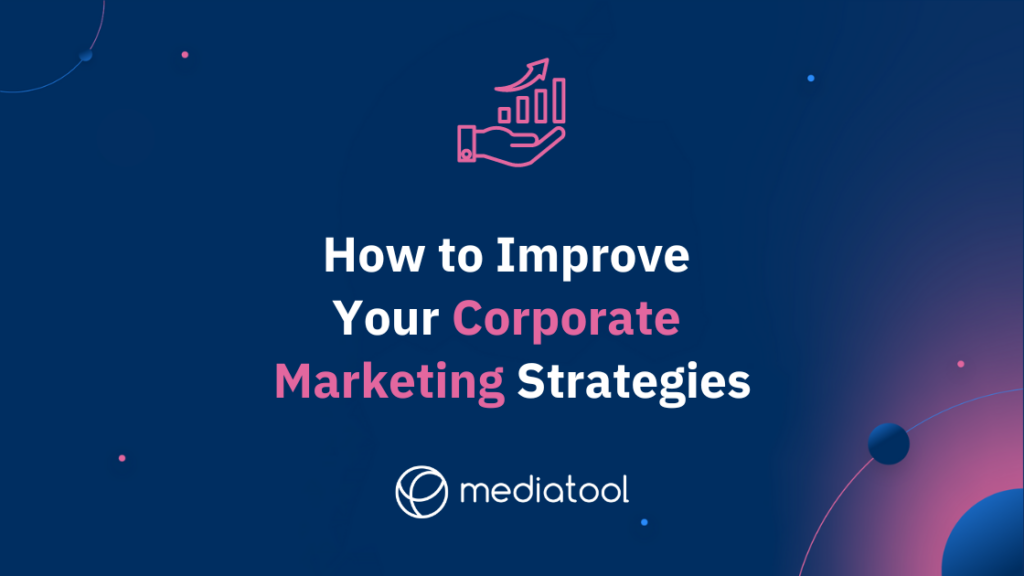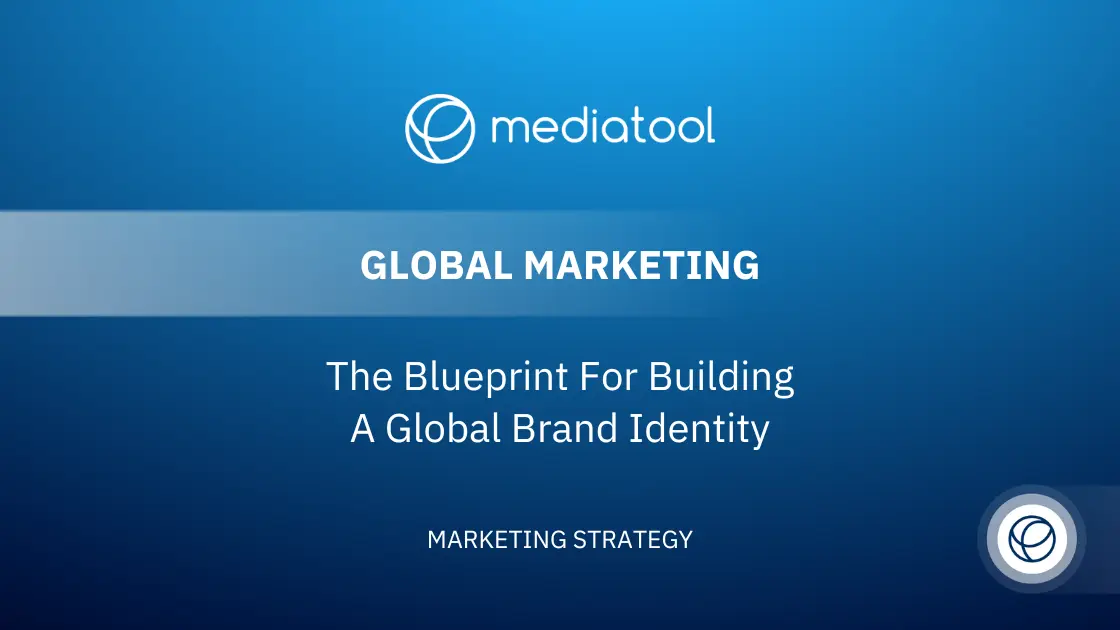What is Corporate Marketing?
Corporate marketing refers to the strategies and efforts employed by a company to promote its brand, values, and offerings. It encompasses various tactics, from advertising and public relations to digital campaigns on social media platforms. With the rise of digital methodologies, content marketing has emerged as a predominant tool in this realm.
According to a study by HubSpot, a staggering 82% of marketers are actively incorporating content marketing into their strategies. Corporate marketing is about painting a picture of a company’s brand identity, establishing its position in the market, and communicating effectively with potential customers.
Corporate marketing also helps create a recognizable brand image in the minds of consumers, enabling a company to differentiate itself from its competitors. As corporate marketing practices evolve, more emphasis is being placed on online platforms, content marketing, and establishing brand loyalty among customers.
Through successful campaigns and meticulous market research, businesses can achieve their corporate marketing objectives, ensuring longevity and success in the competitive market.

Who Uses Corporate Marketing?
Nearly every company relies heavily on corporate marketing, from startups to multinational corporations. Not just businesses benefit from these strategies; even non-profits, political groups, and educational entities like book publishers can tap into corporate marketing practices to boost their brand’s perspective in the eyes of their target audience.
With the rise of the digital age, even sectors that traditionally didn’t prioritize corporate marketing, such as manufacturing facilities and delivery tasks, have begun to realize the potential of these practices. As the landscape of business changes, relying heavily on public relations, advertising, and other corporate marketing strategies becomes crucial for any entity wishing to have an impactful presence in the market.
What Makes a Corporate Marketing Strategy Effective?
An effective corporate marketing strategy focuses on the target market, addressing their pain points and offering solutions that stand out from competitors. Here’s a deeper dive:
Focus on your customers: Knowing your potential consumers’ needs and preferences is pivotal. Market research can help companies understand their target audience better. Corporate marketers must also focus on creating advertising that resonates with their target audience. This could involve leveraging graphic design and media producers to create compelling visuals or crafting press releases that capture the brand’s essence.
Alleviate pain points: Address the issues or “pain points” your potential customers face with your product or service, making their lives easier. Beyond addressing these pain points, companies must continue to innovate. They must identify emerging challenges their potential consumers face and develop new marketing strategies to meet these evolving needs.
Think of ways to stand out from your competitors: Whether it’s a unique selling proposition, better product marketing, or educational YouTube videos that explain your offerings, find your edge. Standing out involves having a superior product or service and establishing a brand identity that is distinct, memorable, and aligns with the values of the target market.
Have a social media presence: In this digital age, having a strong presence on social media is essential. From Facebook to Apple’s iTunes program, platforms offer a chance to connect with new customers and strengthen customer loyalty. An impressive 71% of consumers, after experiencing positive interactions with a brand on social media, are inclined to endorse it to their peers.
With the plethora of social media platforms available, corporate marketing teams must identify which platforms their target audience frequents and create tailored content for those channels. This ensures effective communication and increased engagement with potential customers.
Benefits of Online Corporate Marketing
The advantages of online corporate marketing are manifold. Some of the most prominent benefits include:
Increase sales and enhance conversions: Digital marketing, especially strategies like email campaigns and blog content, can lead to increased sales. For every dollar invested in email marketing, there’s an average return on investment (ROI) of $36, outperforming other marketing channels. The digital age has empowered companies with tools that can be precisely tailored to their target audience, leading to more personalized marketing efforts, which can increase sales and conversions.

Increase your online presence: A robust online corporate marketing strategy can drive more traffic to your website, translating to new leads. The power of online corporate marketing lies in its reach. Unlike traditional forms of advertising, digital marketing allows companies to reach potential customers globally, expanding their market exponentially.
How are your Company’s Corporate Marketing Campaigns developed?
An effective corporate marketing campaign results from meticulous planning, creativity, and execution. Here’s how it unfolds:
The horizontal corporate marketing system
This refers to a coordinated marketing effort where the corporate marketing team collaborates with other departments like graphic design, product marketers, and media producers. This ensures consistent messaging tactics across all channels.
Such a system ensures that the best ideas are brought to the table, eliminating silos hindering creativity. It also fosters a sense of unity and common purpose among different departments, leading to more successful campaigns.
Provide Great Customer Service
A marketing campaign is only as good as the after-sales service that supports it. Ensuring customers’ queries and concerns are addressed promptly can turn them into brand advocates.
In today’s market, customers value transparency and quick response times. By providing top-notch customer service, companies retain their existing customers and turn them into brand advocates who can further promote the brand.
Ethical Sourcing and Supply Chain Management
Modern consumers are discerning and often want to know their products’ origins. Ethical sourcing and transparent supply chain management can enhance a company’s success and brand image.
Consumers are more likely to support and stay loyal to brands that align with their values. Thus, companies that prioritize ethical sourcing and supply chain management boost their brand image and create a strong bond with their customer base.
How to Employ Effective Corporate Marketing
To leverage corporate marketing effectively, consider the following approaches:
Integrated Marketing Communications: This involves integrating all marketing efforts, from advertising to public relations, to convey a consistent brand message. The integration ensures that the target market receives a unified brand experience through digital marketing channels or traditional avenues. Crafting a corporate marketing strategy that encapsulates this ensures that the brand image is consistent, aiding in building an established brand.
Associate your brand with a lifestyle: Brands like Apple don’t just sell products; they sell a lifestyle. Establishing your brand as synonymous with a particular lifestyle can foster a deeper connection with potential customers. This isn’t just about selling a product or service but associating feelings, values, and experiences with your brand. Social media platforms can amplify this association, allowing customers to share their experiences and become brand advocates.
Harness the Power of Social Media: In the modern era, no corporate marketing strategy is complete without leveraging social media. Platforms like Facebook, Twitter, and Instagram offer businesses a unique opportunity to interact directly with their target audience. Corporate marketers can gather real-time feedback, launch marketing campaigns tailored to audience preferences, and ensure brand visibility in a cluttered digital landscape.
Data-driven Marketing: The corporate marketing team should be equipped with tools and expertise to derive actionable insights from the vast amount of data available today. Companies can design marketing strategies that resonate by analyzing customer behaviors, preferences, and feedback. Regular market research can provide insights into shifting consumer trends, helping businesses stay ahead of the curve and ensuring the company’s success in a competitive market.
Thought Leadership and Content Marketing: Offering insights, opinions, and educational content can position your brand as a leader in its field. Engaging content not only attracts potential customers but also establishes trust. A report from LinkedIn-Edelman highlights that 54% of decision-makers allocate over an hour weekly to get into and assess thought-leadership content, underscoring its significance in the corporate marketing landscape. Companies should focus on producing valuable content through blog posts, educational YouTube videos, or webinars to build and maintain their position as industry leaders.
Pay attention to your brand’s voice: Whether it’s through public relations, press releases, or advertising, ensure that the brand voice remains consistent and authentic. This consistency reinforces brand identity and ensures that potential consumers and the target market can quickly recognize and resonate with the brand’s perspective. Engaging with media producers and ensuring press releases highlight the brand’s unique voice can go a long way in building a recognizable brand in the market.
Guide on Information Overload and How to Overcome It?
In our modern era, consumers are bombarded with many marketing messages daily. Overcoming this “noise” is crucial for corporate marketers. They should create campaigns that resonate, focus on quality over quantity, and use data analytics to fine-tune their messaging.
Corporate marketers need to understand the power of simplicity in addressing information overload. Minimalistic designs in advertising, concise and clear messaging tactics, and direct calls to action can help break through the clutter. It’s also essential to provide genuine value. Instead of flooding the target audience with incessant promotions, share valuable content that educates, entertains, or inspires.
Another powerful method is personalized marketing. By leveraging data analytics and understanding each potential customer’s preferences and behaviors, corporate marketing strategies can tailor messages that resonate on a personal level. This approach increases sales and strengthens customer loyalty, as customers feel that the brand truly understands and values them.
Powers of Observation: 8 Analyzed Ways to Develop It
For corporate marketers, observation is crucial. Noticing trends, understanding competitors, and being aware of market shifts can provide a competitive edge. Observing can lead to a deeper understanding of products, new marketing strategies, and ways to communicate a brand’s message effectively.
Observational prowess often begins with active listening. By tuning into customer feedback, reviews on social media, and even competitors’ public relations announcements, marketers can glean insights to refine their corporate marketing strategies. It’s noteworthy to mention that 91% of individuals aged 18 to 34 place as much trust in online reviews as they do in personal recommendations. Platforms like Twitter and Facebook are goldmines for real-time opinions and sentiments.
Regular industry seminars, workshops, and conferences can enhance the observational skills of the corporate marketing team. Such events provide first-hand insights into market changes, upcoming technologies, and even shifts in consumer behavior. The best ideas often stem from understanding the evolving landscape and adapting swiftly.
Developing Competency Framework

A competency framework guides a corporate marketing team’s development and prioritizes the right skills. This strengthens brand ties and partnerships, ensuring that the marketing team is equipped to create successful campaigns.
As companies evolve, so do their marketing needs. The competency framework should be dynamic, with regular updates based on market research and internal assessments. For instance, with the rise of digital marketing, content creation, SEO, and analytics skills might become more crucial than traditional advertising techniques.
Also, mentoring is a potent tool. Senior corporate marketers can guide younger team members, sharing their wealth of experience and providing hands-on training. This could include bootcamp style lessons, where real-life scenarios are played out, helping the marketing team anticipate challenges and strategize effectively.
How can the Corporate Marketing Mix Help?
The corporate marketing mix combines tactics and strategies to reach marketing objectives. Companies can optimize their reach and impact in their target market by adjusting elements like product offerings, advertising strategies, and public relations efforts.
Each element of the corporate marketing mix should be continually reassessed. Monitoring the return on investment (ROI) for each marketing effort is essential. By doing so, companies can redirect their marketing dollars to the most effective strategies, ensuring better results and increased sales.
In the current market scenario, where customer preferences change rapidly, businesses must stay agile. Periodic reviews of the corporate marketing mix, accompanied by market research, can help companies stay ahead of the curve. This ensures they meet the needs of their target market, fostering brand loyalty and ensuring the company’s success.
Conclusion
In the ever-evolving landscape of corporate marketing, businesses today must navigate myriad strategies to ensure they communicate effectively with their target audience. Whether a startup where the founders decided on a unique selling point or a multinational corporation promoting a particular product, the essence of success lies in understanding the three elements that make corporate marketing resonate: the specific brand identity, the means to differentiate in a saturated market, and the ability to address the needs of the consumers.
As entities rely heavily on these practices to establish their footing in the market, it becomes evident that one aspect – the power of observation and agility – stands out in driving their success. By continuously assessing and adapting, companies can ensure they remain at the forefront of their industry, poised to capture the attention and loyalty of their intended audience.





